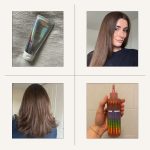
Throughout the past two weeks, we have been bombarded with high-stakes promos for The Voice and The Block on the two major commercial networks during competition breaks at the Tokyo Olympics.
On Olympics exclusive broadcaster Seven, an initial two-minute blockbuster trailer (directed by ARIA winner James Campbell) was released in early July before the Games started, showcasing Voice judges Keith Urban, Rita Ora, Jessica Mauboy and Guy Sebastian gowned up dancing and singing to Justin Timberlake’s Can’t Stop The Feeling!
Over the past five weeks, regular edited versions have appeared on Seven and throughout the Games, teasing us with a sneak peek of a couple of the 62 artists singing for the top prize.
We’re promised a new era of the show after almost a decade on Nine, a “re-imagined” format since it started in 2012 with how the judges fight for talent, with voice-overs from Urban looking for someone “who stops me in my tracks”, and Ora – “let’s make some dreams”.
Over on Nine, a similar advertisement for The Block – Fans v Faves.
We see previous winners (Ronnie and Georgia, Mitch and Mark), long-time host Scott Cam, and a “wild-west” promo with “we’ve never done this before” moments.
Both skill-based reality TV shows go head to head on Sunday night in prime-time viewing slots, and literally, millions will be watching.
RMIT marketing lecturer Amanda Spry told The New Daily: “This looks like a carefully calculated marketing strategy from both Seven and Nine networks.”
“They’ve identified what is likely a lucrative slot for not only viewers but also advertisers and put up their front-running shows to maximise chances of securing viewers,” Dr Spry said.
TV Blackbox’s Steve Molk says next week “represents almost a complete reset for Seven and Nine post Olympics (10 has Survivor continuing and this failing season of The Bachelor)”.
“Nine are pumping the tyres on The Block with great promos and the promise of drama, drama, drama – almost MAFS style,” he said.
How networks use big sport events to introduce their next big TV investment
Between July 21 and July 30, Seven’s Olympics broadcast across 7, 7mate and 7+, reached a massive 15.7 million viewers.
In its published audience report, on July 30, Seven was No.1 “across full 24 hours with a 68 per cent commercial free-to-air network share, over three times its nearest competitor”.
Molk says “it’s super common” for the networks to introduce new shows in the midst of major events.
“Always use your biggest moments to promote what’s coming. Seven used to do it during the Australian Open – “after the tennis” – and these past two weeks they’ve been doing it again – “after the Olympics”.
“They would be crazy not to.”
Dr Spry said cross-promoting shows like The Voice during the Olympics is “good business sense” and is a promotional strategy commercial networks use when they host a major event like an Olympic Games or any major televised event.
“Seven attracted record-breaking viewership of the Olympics … it’s a case of taking advantage of the huge number of eyeballs already on Seven and getting new shows in front of them,” she said.
“In an era where commercial networks are struggling to lure back viewers from streaming services like Netflix and Stan, they will be leveraging all available opportunities for effective promotion and boosted viewership.
“Assuring viewers of new programs that are coming helps and capitalises on the viewing habits that people may have established with Seven during the Olympics, when they may be watching with greater frequency and volume than usual.
“Seven will certainly be hoping that this translates to their new programs.”
Molk added that Seven needed to do something “big and flashy” after Nine casts away the show with poor ratings.
“It’s a big move by Seven picking up The Voice … the question will be how do they maintain the audience for something that Nine cast away because the audience faded?
“The Olympic bubble will certainly help, as will having the closing ceremony after the first episode on Sunday.”
Over at Nine, Molk says it was “smart to run The Block against The Voice as Nine’s offering is a marathon, due to run for eight to nine weeks/four to five nights a week, whereas The Voice is a shorter run”.
“The Block is big money for Nine and has helped them own the first half of the week in this back half of the year for some years now,” he explained.
New shows to cure our Olympics hangover
With all the bells and whistles around the blockbuster shows, the question is whether audiences will stick with Seven or switch to Nine with its “dedicated Block fan base”, stay focused on the couch and prepare to be cured of our Olympics hangover.
Introducing four new sports including skateboarding (youngest female competitor from Japan is just 12 years old), surfing, rock climbing and BMX to this year’s Games must mean a younger audience is captivated, and watching.
Dr Spry says that recent media reports show that the Olympics coverage has been popular with young viewers aged 18 to 39, so “Seven will be looking for opportunities to exploit”.
“Watching the Olympics evokes powerful feelings – we’re watching athletes overcoming adversity and achieving life-long dreams, we’re witnessing examples of inspiring sportsmanship, and we’re simply enjoying feel-good viewing,” she said.
“Promoting other shows at the same time means Seven can try to transfer some of these positive emotions to their new show, especially those that have elements of competition, game, and skill.”
Molk says: “I’m not sure anything will cure us of our Olympic hangover while so many of us are still in lockdown.
“No question reality will be what we’re fed, and we’ll reasonably quickly swing back [to] watching what’s offered, but the bulk of us will return to finding our televised pleasures on the streaming services or catch-up.”
As Urban says in one promo: “Let the games begin.”
The post <i>The Voice</i> v <i>The Block</i>: TV networks next big investments after the Olympics appeared first on The New Daily.
Powered by WPeMatico






